 From the MCRFB news archives: 1982
From the MCRFB news archives: 1982
CKLW Music Director Record Breaker, Hit Maker
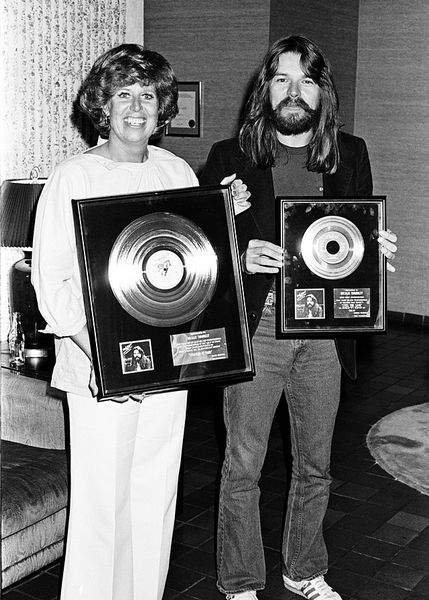
DETROIT / WINDSOR — Rosalie Trombley is a mechanic. A very effective music researcher who has been guiding the the music input for CKLW for 14 years.
 She’s well known and well liked in the music business. She’s also a tough lady. “You better have your facts straight, because I do my homework,” she likes to tell record promotion people.
She’s well known and well liked in the music business. She’s also a tough lady. “You better have your facts straight, because I do my homework,” she likes to tell record promotion people.
Indeed she does. She knows the Detroit retail record scene inside and out and with her assistant Bev Merrill she thoroughly researches what is selling and what is not through a series of calls to retail stores.
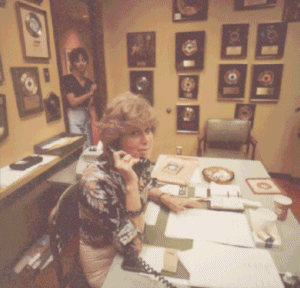
She starts at 10 a.m. on Monday and has her tabulation complete by noon on Tuesday “ready for Pat.” Pat is Pat Holiday, program director of CKLW, who works closely with Trombley. “I respect her judgment. If she fights for one thing I will go along. She likes to add the hits. Sometimes she wants to add three records,” explains Holiday. I’ll say there’s a slot for one and she’ll pick the one. It will be a good choice.”
Holiday adds, “She understands what we’re trying to do (reach a 25 to 40 year old audience and what it really comes down to is that what’s best for the station prevails. But I let her be on an island. I let her do her job.”
Her job consists of measuring pop, R&B and album sales. “We’ve get a picture from retailers, rack-jobbers and one-stops,” she explains. We lay this out for the program director. Pat (Holiday) and I discuss what’s happening. I may bring records that we’re not playing in these meetings. Pat and I will discuss the various records we’re not playing and and he’ll want to know who’s playing them. We look locally versus nationally.”
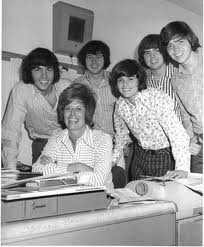
Trombley finds her job and radio “a struggle these days. We don’t have the clout we had ten years ago. Record buyers don’t have the loyalty they used to have. They are not as devoted as they were in the days of the Beatles. Maybe they will buy the Stones this month and Ozzy Osbourne the next.”
Trombley keeps track of Osbourne and Van Halen, even though CKLW doesn’t play these artists. “It isn’t as much fun as it was in the late 1960s and 1970s,” she adds. “Record accounts are more cautious. There’s not as much fun or excitement in radio either today.”
She notes the record promotion people are frustrated today with radio stations. “They keep coming back with the same records. I like to give them as direct an answer as fast as I can. Record companies want to break records. We no longer care to be first on a record. We have no room to break records. But I try to take care of developing records. I try to get on national records that broke late here.”
Holiday agrees that the station will “go on a record that is happening naturally, but is not happening here.”
Trombley’s research is only half of the hurdles that a record must clear to get on the station. The second step is Holiday’s call-out research. “We make 200 calls a week,” he notes. “Some to contestants, our own listeners. We test for burnout, test what other stations are playing. A record has to be in the market for almost two months before it can be tested in call-out (research),” Holiday reasons.
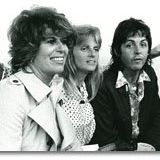
But some records get on the air right out of the box. Holiday recalls that when Sheena Easton’s “Morning Train” arrived he got a gut reaction and and pronounced it a hit.
Although Holiday notes that CKLW “is looked upon as a pop station to break black music, the Gap Band (“You Dropped A Bomb”), despite strong R&B play had to wait clearance by the call-out research. Holiday notes that in 70 calls no one was familiar with the group. This resulted in the record being put on hold “for a week or two.”
But “Asia is getting 50 year old ladies to give it a nine” rating, Holiday notes. Holiday only started call-outs (a station staff selected to field random listeners’ phone calls) a few months ago. He wrote his own program for an Apple computer and he now gets male and female data as well as age demographics in five-year spreads.
The station adds two to three records a week. Maybe six records a month are considered for out of the box immediate air play. May half of them make it.
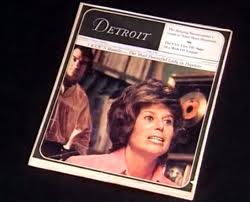
This is half of what once was the case, Holiday notes. ” “It takes longer to to get a reading on records now. It’s difficult because of the economy. Holiday added that the economy in Detroit and Windsor are particularly down. “That’s the value of national research,” he concluded.
Trombley says she thinks a lot of the record promotion people of Detroit. “I’d rather work with local people. I send them out to check my research. If there’s a problem with a record, maybe it’s a stock problem. Maybe it needs other stations playing the record.”
While she has a soft spot for promotion people, she adds that record labels “waste their money hiring independent record promotion people.” END.
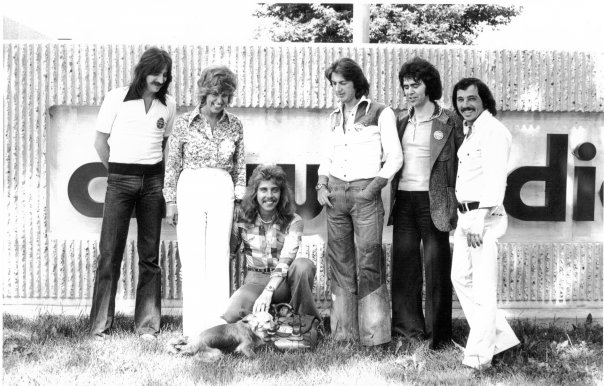
(Information and news source: Billboard; August 7, 1982)
![]()

Wow this is amazing ! I am from Windsor and now my nephew is a lawyer in the music business and made people like Drake, Nelly Furtado Sum 41 and many more famous thru his firm in Toronto. Small world isn’t it. This is fantastic what Rosalie did. And I knew nothing about it.